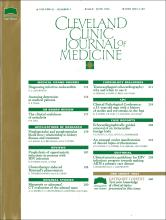ABSTRACT
BACKGROUND In the kidney, the afferent and efferent arterioles normally constrict or dilate in response to changes in systemic blood pressure to maintain glomerular filtration while protecting the glomerulus from excessive pressure. In diabetes mellitus and hypertension, the two most common causes of kidney failure, sustained hypertension within the glomerulus damages the glomerular membrane and eventually results in loss of kidney function.
SUMMARY Techniques developed in the last 10 years allow direct study of the glomerulus and the glomerular circulation. In both diabetes and hypertension, the afferent vessels may dilate, resulting in excessive pressure in the glomerulus. Calcium antagonists, angiotensin-converting enzyme inhibitors, and cyclosporine have direct effects on the preglomerular and postglomerular vessels, and the afferent and efferent arterioles may respond differently to the same agent.
CONCLUSIONS Techniques for studying afferent and efferent arteriolar changes and glomerular filtration rate may provide important insights into the actions of drugs and into renal diseases. Clinicians are beginning to be able to select drugs that have desired effects on the renal microcirculation.
- Copyright © 1994 The Cleveland Clinic Foundation. All Rights Reserved.






